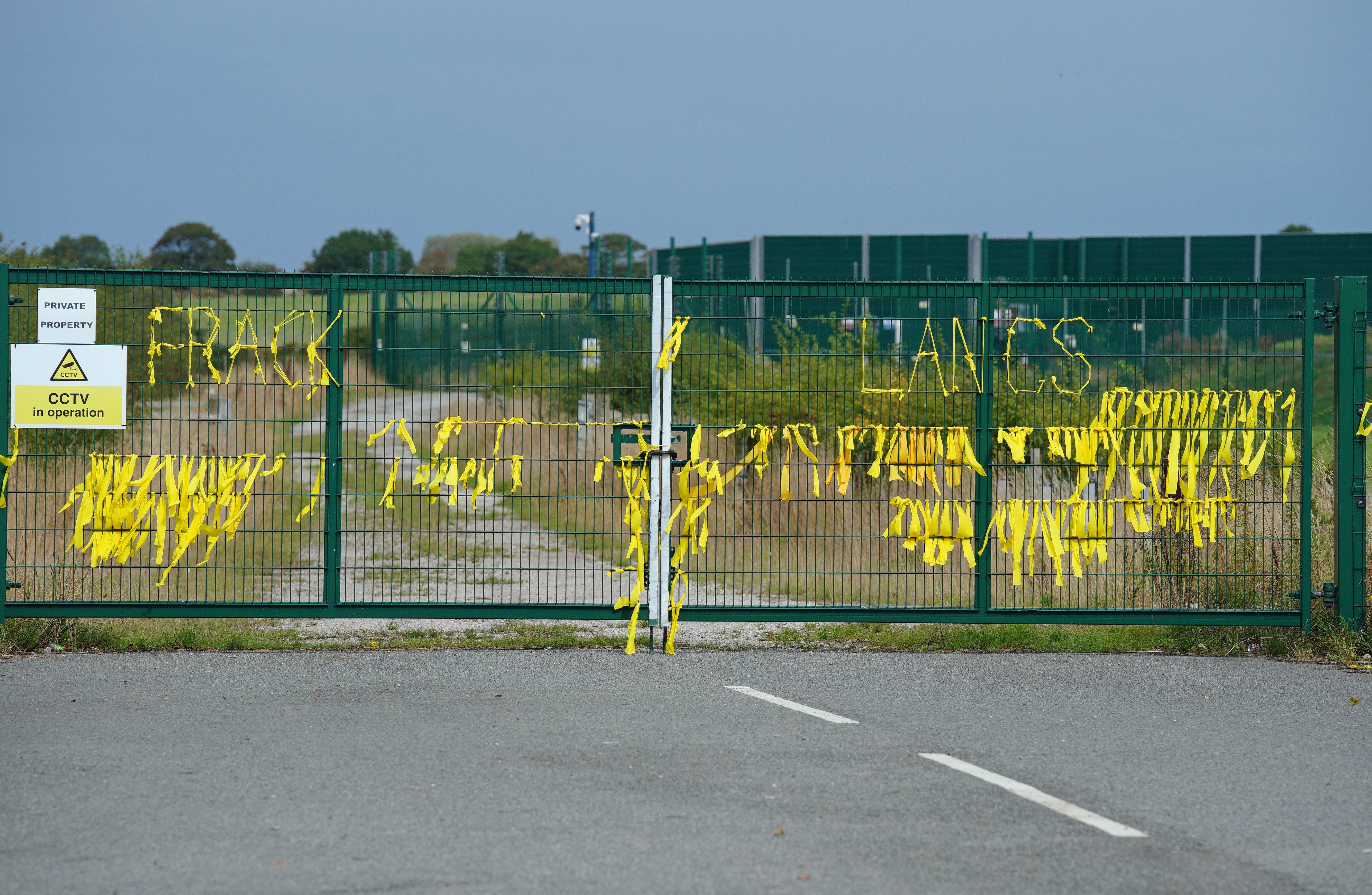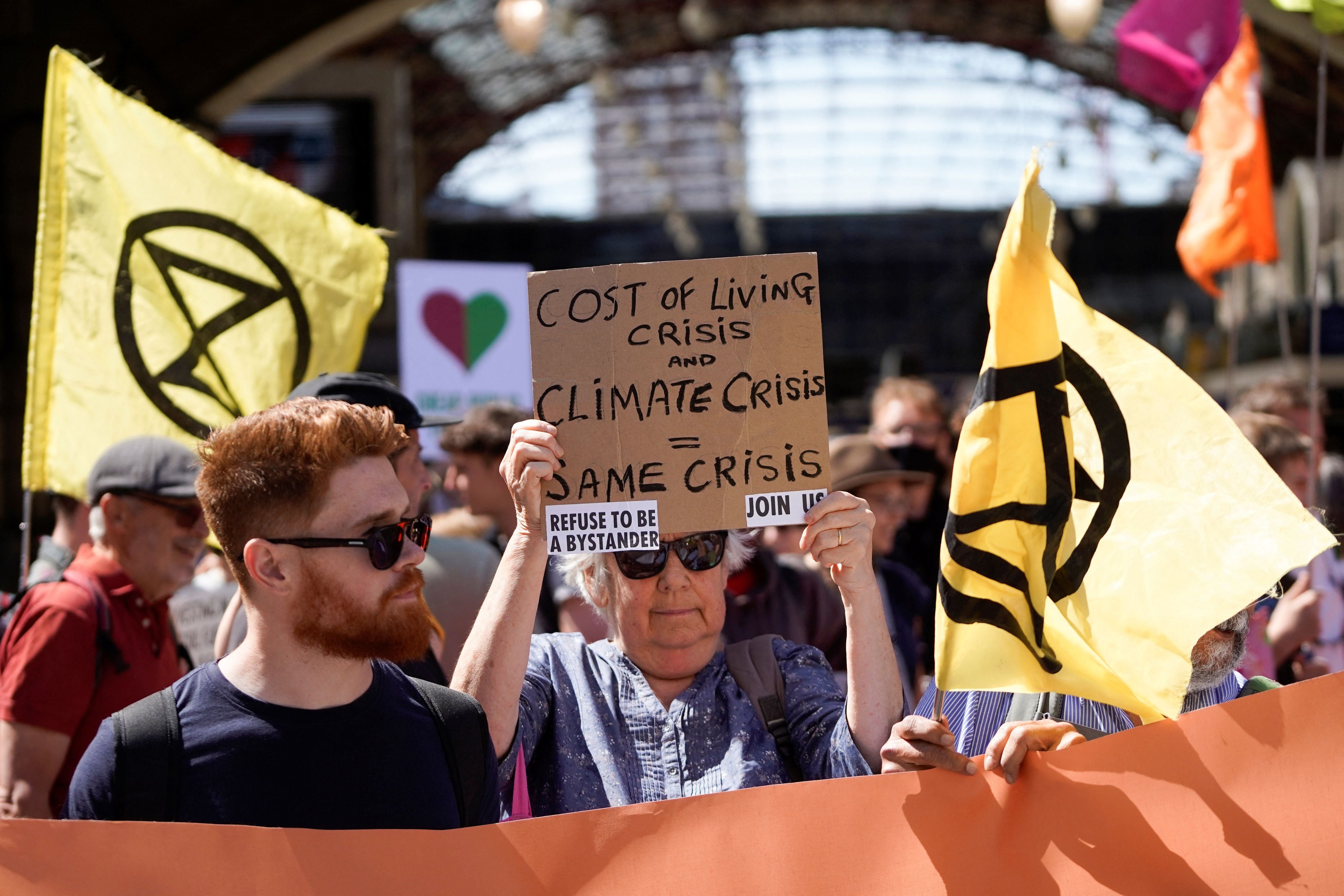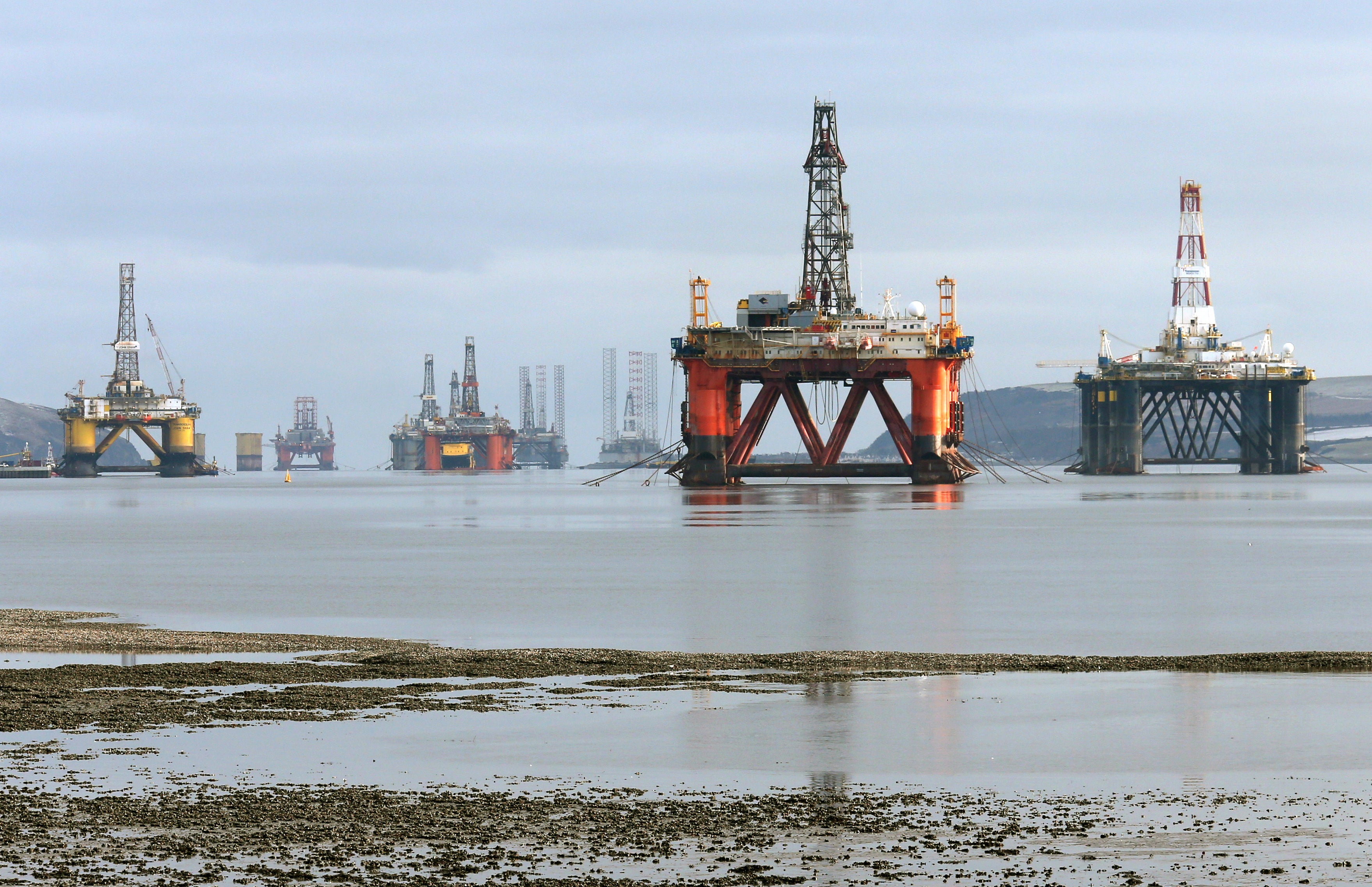Government warned renewables were solution to energy crisis year before Truss gas push
Exclusive: Friends of the Earth said documents raise “serious questions” about the prime minister’s energy strategy
The government was warned renewables were the best solution to the energy crisis a year before Liz Truss’s push for new oil and gas projects, new documents show.
A government briefing document for a meeting between Business Department officials and Equinor last October referenced the already record-high gas prices across the world saying: “The long-term solution to the price spike is increasing our domestic renewable generation.”
Another briefing note for a meeting with BP in December noted that “the long-term solution to reliance on volatile fossil fuel markets is increasing our domestic renewable generation and transitioning away from reliance on fossil fuels”.
The documents were obtained by the campaign group Uplift through a freedom of information request and shared exclusively withThe Independent.
The briefings note that the UK will need oil and gas even as it moves toward reducing carbon emissions to achieve net zero and one welcomes continued investment in hydrocarbon exploration and production.
However, their advice that renewables are the best long-term solution to the gas price crisis and reliance on volatile fossil fuel markets appears to be at odds with the government’s decision to lift a ban on fracking and pledge to extract “every ounce of oil and gas from the North Sea”.
Ms Truss has argued that energy policy over the past decades has not focused enough on securing supply, and has pledged to make the UK a net energy exporter by ramping up oil and gas production, as well as the deployment of renewable and nuclear energy. She has described this supply issue as one of the root causes of high prices.
However, experts have repeatedly said there is no evidence drilling for shale gas in England and extracting gas from the North Sea would have a meaningful impact on the international price of gas that has soared in the wake of Russia’s invasion of Ukraine.
Government ministers are among those to point out that UK gas production is small and that global prices set UK prices.
Starting fracking production and North Sea mining sites would also take years, further locking the UK into fossil fuels, exacerbating the climate crisis and potentially creating stranded assets that the taxpayer would have to pay to decommission, campaigners warn.
Tessa Khan, director of Uplift, which campaigns for a fossil-free UK, said the documents showed that the government knows the solution to the energy crisis is to get the country off fossil fuels with renewables, which are now nine times cheaper than gas.
“So, why is it promising this week to fast track new oil and gas developments and licence new fields, which will only lock us into an unaffordable and polluting source of energy far longer than is necessary?” she said. “The only winners from this would be the profiteering energy giants that want to keep us hooked on fossil fuels.”

The government announced last week that Cambo oil and gas field and four others were among 138 projects to be accelerated under its new mini-Budget.
But the prime minister’s claims that gas from fracking could flow in six months have been called into doubt – with one company estimating it could take as long as 18 months.
Friends of the Earth’s head of policy, Mike Childs, said the documents raised “serious questions” about the prime minister’s energy strategy.
“BEIS officials are clear that a continued reliance on fossil fuels is not the answer to rising energy prices, yet this government has just given the green light to fracking and more North Sea gas and oil licences,” he said.
While Mr Childs welcomed the government announcement on Friday that it was easing planning rules for on-shore wind, he said Liz Trust must “end the obsession with new fossil fuel developments and prioritise cheap homegrown renewables and a nationwide insulation programme”.

Adrian Ramsay, co-leader of the Green Party, said BEIS officials were “absolutely” right that the solution to soaring gas prices was increasing renewable energy and that ministers should “urgently” translate this into policy.
The government’s new policies were announced as campaigners stepped up opposition to developing a major oil and gas field northwest of Shetland. If given the go-ahead by the government, Rosebank field could produce nearly 500 million barrels making it three times bigger than the controversial Cambo field, according to analysis by Uplift.
The charity estimates that nearly 90 per cent of the field is oil and notes that around 80 per cent of the oil produced in the UK is exported.
According to the project summary, the first oil is expected to be produced in 2026, and the field life is estimated to be approximately 25 years, meaning it still could be producing oil and gas a year after the UK has pledged to be net zero.

A BEIS spokesperson said: “This is a deliberate attempt to misinterpret our policies.
“It is a fact that there will continue to be ongoing demand for oil and gas over the coming years as we transition to cleaner, lower carbon energy – sourcing gas locally in the North Sea makes us less dependent on foreign imports and produces less than half the carbon footprint of imported gas.”
The spokesperson said the government was also producing more renewable energy.
“Since 2010, we have delivered a [five-fold] increase in the amount of renewable energy capacity connected to the grid.”
A spokesperson for Equinor said the company was contributing to the UK’s energy security by supplying natural gas and it had sped up its renewable energy plans with the development of the world’s largest wind farm and aimed to be net zero by 2050.
But it added there would still be a need for oil and gas for decades and said Rosebank could account for around 11 per cent of the UK’s oil production through the 2030s helping reduce the UK’s oil and gas trade deficit.
Join our commenting forum
Join thought-provoking conversations, follow other Independent readers and see their replies
Comments


Bookmark popover
Removed from bookmarks